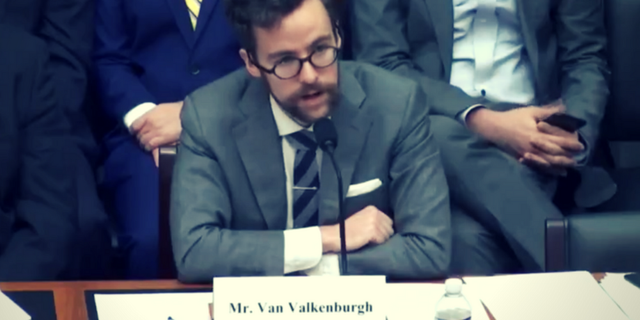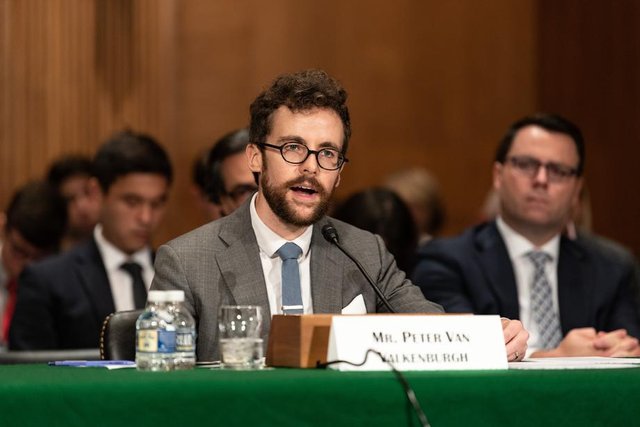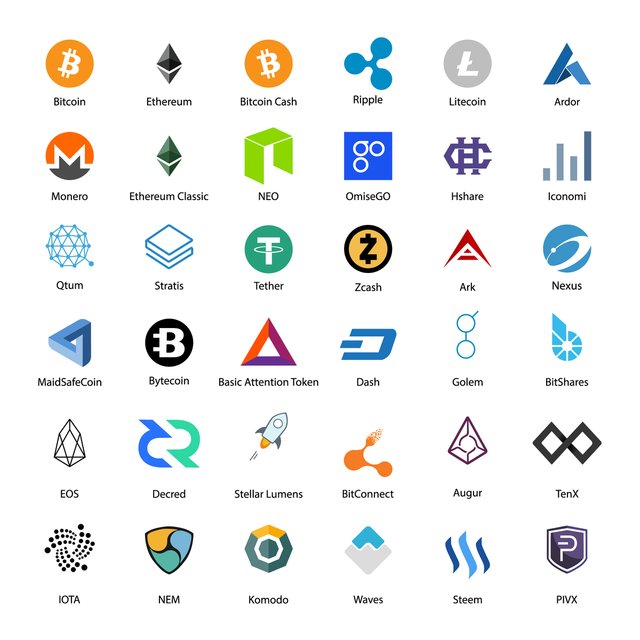How I explained cryptocurrency and blockchain technology in the Senate
Today I had the honor of testifying in support of cryptocurrency innovation before the Senate Banking Committee. My goal was to help the committee understand not only what this technology can do but why it will be an essential component to the internet’s infrastructure in the future. Though undoubtedly still nascent, public blockchains are a genuine breakthrough in how information is organized online.
By now the flaws in today’s internet are apparent to all of us. There is a real possibility that some solutions may come from the dedicated community of technologists that are experimenting and building with cryptocurrency. And that is worth protecting.

Here is my oral testimony:
Thank you for the opportunity to speak with you today. My name is Peter Van Valkenburgh I’m the director of research at Coin Center, an independent non-profit focused on the public policy issues affecting cryptocurrency and public blockchain networks.
What is Bitcoin? Bitcoin is the world's first cryptocurrency and it works because of the world’s first public blockchain network.
What does Bitcoin do? It’s easy. It lets you send and receive value to and from anyone in the world using nothing more than a computer with an internet connection.
Why is it revolutionary? Because unlike every other tool for sending value over the internet, it works without the need to trust a middle-man.
The lack of any corporation in between means that bitcoin is the world’s first public digital payments infrastructure. And by public I simply mean open to all and not owned by any single entity.
We have public information infrastructure for websites and email, it’s called the Internet, but the only public payments infrastructure that we have is cash, as in paper money, and it only works for face to face transactions.

Before Bitcoin, if you wanted to pay someone remotely—over the phone, wire, or internet—then you could not use public infrastructure. You would rely on a private bank to open their books and add a ledger entry that debits you and credits the person you are paying. And if you both don’t use the same bank, then there will be multiple banks and multiple ledger entries in between.
With bitcoin, the ledger is the public blockchain and anyone can add an entry to that ledger transferring their bitcoins to someone else. And anyone, regardless of their nationality, race, religion, sex, or credit-worthiness can (for absolutely no cost) create a bitcoin address in order to receive payments digitally.
Bitcoin is the world’s first globally-accessible online money.
Is it perfect? No. Neither was email when it was invented in 1972. Bitcoin’s not the best money on every margin. It’s not yet accepted everywhere, it’s not used often to quote prices, and it's not always a stable store of value. But it is working, and the mere fact that it works without trusted intermediaries is amazing; a breakthrough in computer science and as significant for freedom, prosperity, and human flourishing as the birth of the Internet.
And it’s just the beginning. If we can replace private payments infrastructure, we can replace other private chokepoints to human interaction as well.

Why should we want to build more public infrastructure? Why should we embrace blockchains over corporations? Why should we tolerate their inefficiencies and work to make them better. Why should we want the pioneers of this technology to be here, in the US and not flee overseas.
A simple reason. Because the corporate intermediaries providing today’s critical but privately-owned infrastructure are becoming fewer, larger, and more powerful, and their failures are increasingly grave.
Roughly half of all Americans, 143 Million, have had their Social Security numbers exposed to hackers because of a breach at Equifax.
The SWIFT network has relayed hundreds of millions of dollars in fraudulent transactions from hacked member banks in Bangladesh, Vietnam, Ecuador, and Russia. The FBI suspects that the largest of these hacks was perpetrated by North Korea.

Corrupt, low-level employees at an Indian Bank, Punjab National, we’re able to fraudulently certify SWIFT messages stealing $1.8 Billion, the biggest electronic robbery in history.
In October 2016 an estimated 1.2 million internet connected devices were hacked and turned into a botnet that, for several hours, made prominent websites inaccessible across Europe and North America, including CNN, Fox News, The New York Times, and the Wall Street Journal.
Increasingly, physical machines are connected to the internet to augment their capabilities, they’re wired through servers owned and maintained by private and trusted intermediaries; the so-called, internet of things. Pacemakers from St. Jude’s hospital have been hacked. Baby monitors from TRENDnet have been hacked. And Jeeps from Jeep have been hacked to the point where they can be remotely commandeered and driven off the road.
Those vulnerabilities are inherent in systems with single points of failure. It doesn’t matter if the point of failure is a corporation or the government, there shouldn’t be a single point of failure.
Similar chokepoints existed before the Internet, if you wanted to deliver a message you’d have to go through one of three TV broadcasters or a handful of newspapers. Private corporations are essential, but no critical infrastructure should be wholly dependent on one or two. The Internet removed single points of failure in communications infrastructure and ushered in a wave of competition among new media corporations building on top of its public rails.
Blockchains could similarly disintermediate critical payments and IOT infrastructure. The technology is not yet ready to answer all of these problems but it is our best hope, and as with the Internet in the 90s, we need light-touch pro-innovation policy to ensure that these innovations flourish in America for the benefit and security of all Americans.

BY PETER VAN VALKENBURGH / October 11, 2018
Source: https://www.reddit.com/r/Bitcoin/comments/9odpv7/the_public_internet_needs_public_payments/
Hi! I am a robot. I just upvoted you! I found similar content that readers might be interested in:
https://coincenter.org/entry/the-public-internet-needs-public-payments-infrastructure
Downvoting a post can decrease pending rewards and make it less visible. Common reasons:
Submit